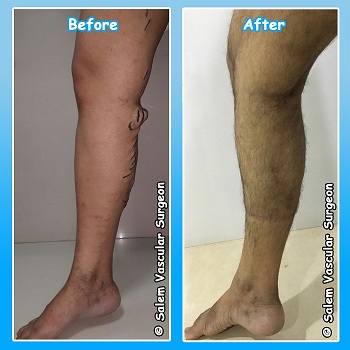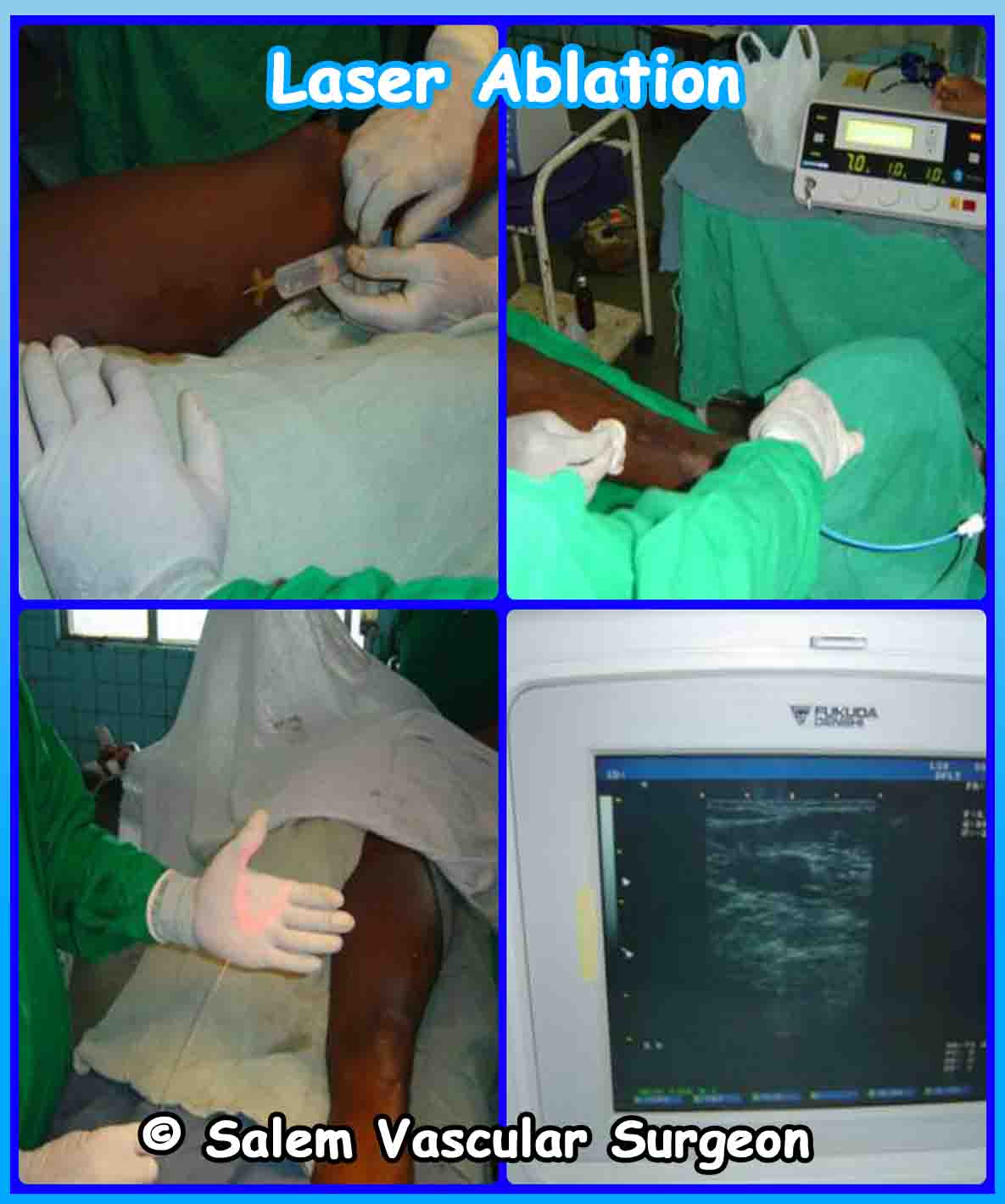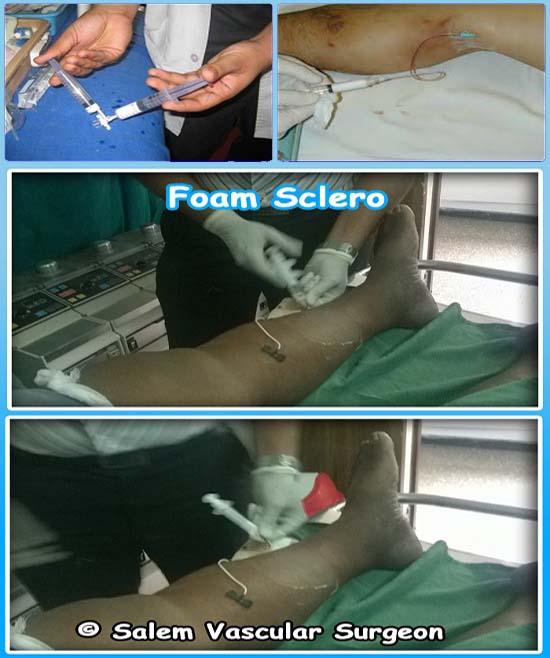Salem Vascular Surgeon
Hospital Address: |
Appointment Time: |
|
VH Speciality Hospital No.11, Dr NV Sundaram Gardens, Brindavan Road, Salem - 636004 |
Monday - Saturday Sunday - Holiday 9 AM - 7 PM |

Varicose Vein
Varicose veins can occur in almost anyone and affect up to 35% of people in the India. You may inherit a tendency to develop varicose veins from a parent. Women, women who have had multiple children, and obese persons are at a higher risk.
Symptoms
Causes
SEE A VASCULAR SURGEON: You will be asked questions about symptoms and medical history, including questions about family members. The vascular surgeon will also perform a physical exam that includes gently probing for problem areas on your legs while you are standing.
AN ULTRASOUND MAY BE RECOMMENDED: A painless ultrasound is usually given during during the same office visit to pinpoint problem veins and determine the best way to treat them.
Treatment Option


Copyright © 2025 - All Rights Reserved - Salem Vascular Surgeon | Designed & Developed By Dazz IT Wing